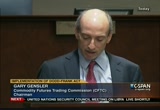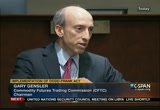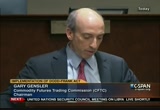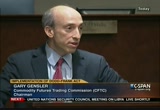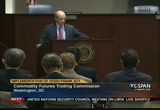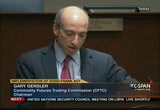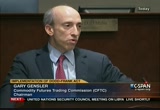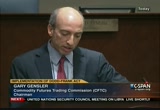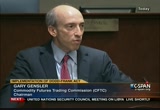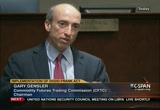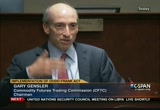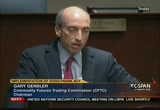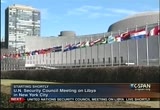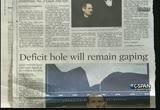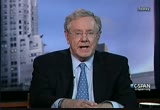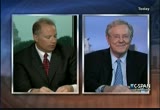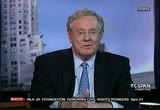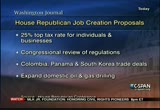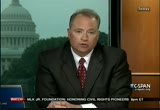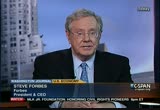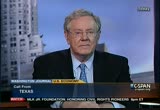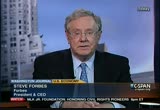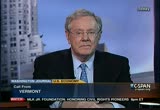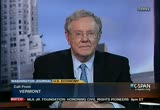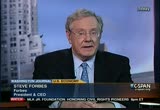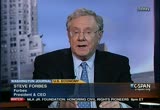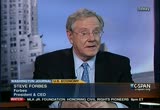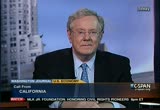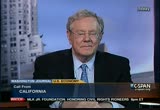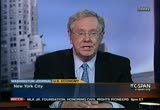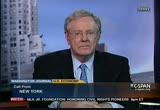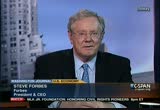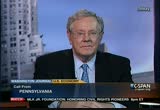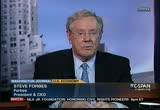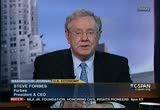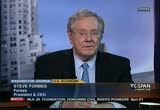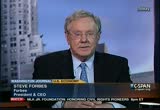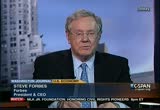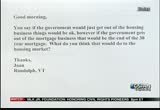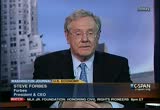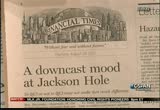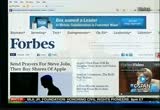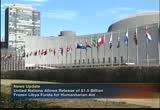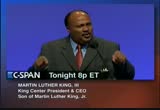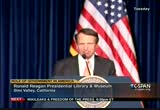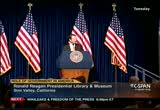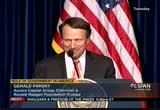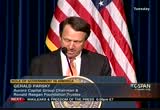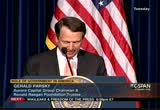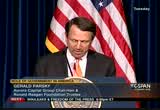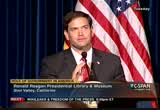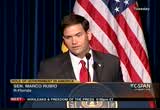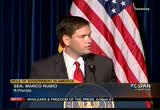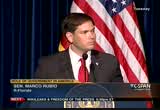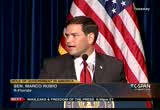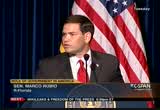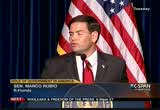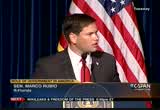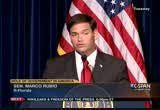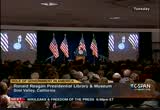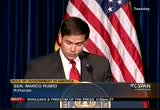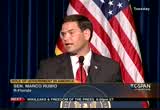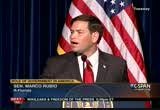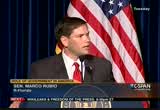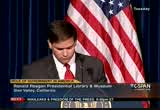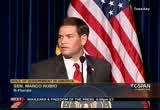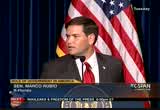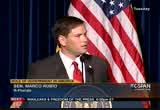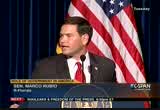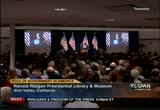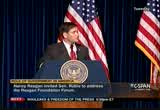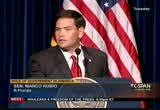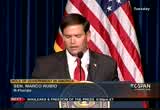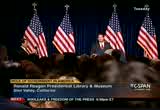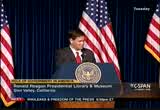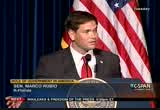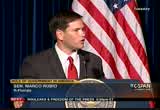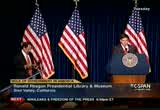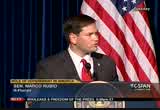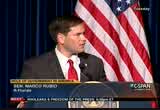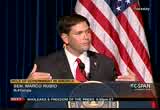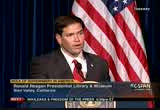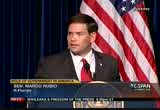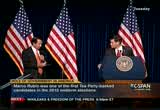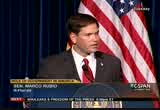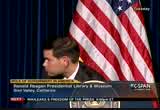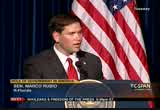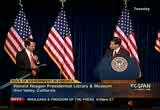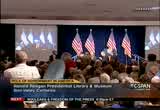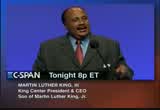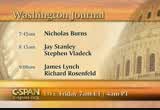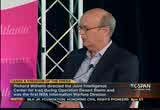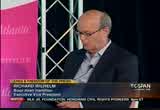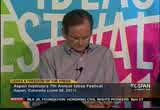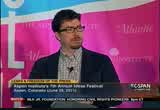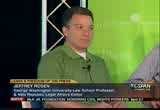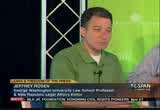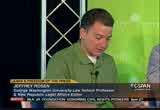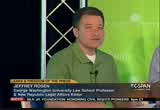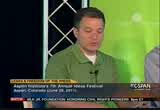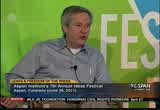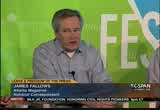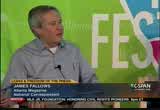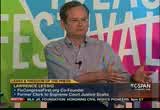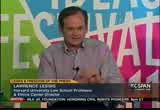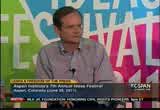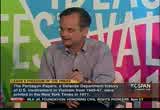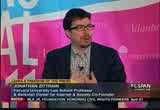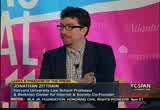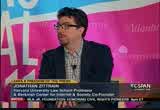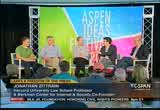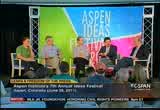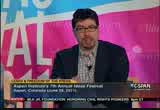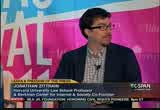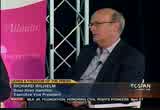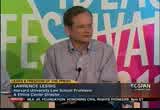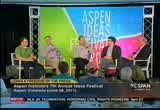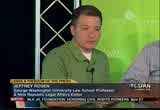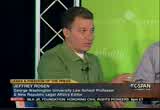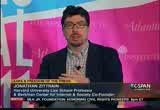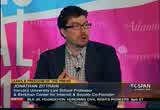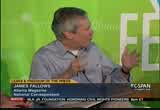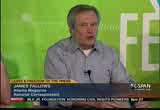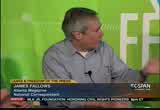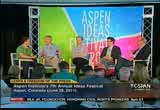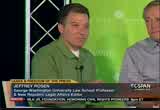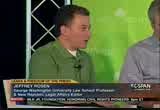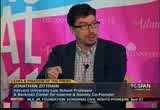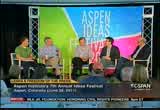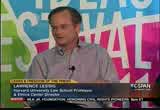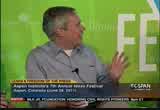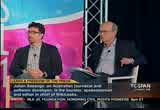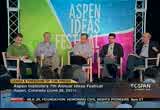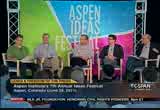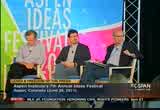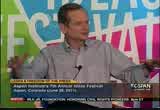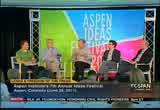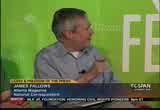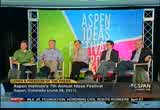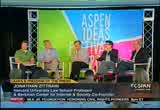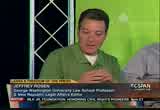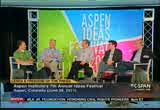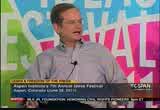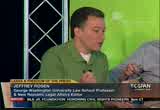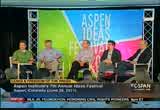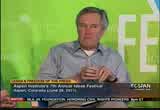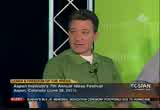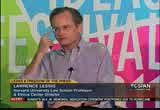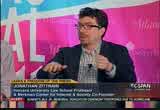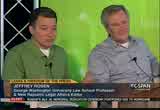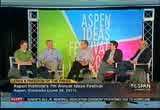tv U.S. House of Representatives CSPAN August 25, 2011 5:00pm-8:00pm EDT
5:00 pm
it is great to see so many economists from many fine universities are on the globe gathered here with an impressive group of government ask -- experts. i want to thank you for graciously sharing with your expertise and your time to discuss the issues that affect the commodities markets. your insights are very helpful to us as we think through surveillance matters, enforcement efforts of this agency. no doubt, because i know with a roomful of economists, something will spill over with the views on dodd-frank with our rules writing. i want to thank the office of the chief economist for cut -- putting together this conference, but even more than that, your contributions to this agency. it seems that nearly every meeting i have there is someone from the staff of the chief economist in there. before i get started, i thought
5:01 pm
i would give you an update on where we stand with the cftc's response to the 2008 crisis. i know that is not the core of what you are doing today, but i thought i would put it in that context. three years ago in our country, the largest financial institutions were trading swaps in the shadows, and the marketplace contributed to, and i believe helped accelerate as the financial system was going into the crisis moment of downwards, 2008, a dou spiral. it is clear that swaps contributed to that. swaps added more risk to the financial system with less backed and more capital. there was a belief that certain financial institutions were not only too big to fail, but as we got into the crisis,
5:02 pm
interconnected. what if we let this one down, what about their uncollateralized exposures to others what players. -- swap players. when aig and a lehman brothers and others collapsed, it was the taxpayers who had to pick up the bill to prevent the economy from diving further into a depression. and it was not just the financial system that failed. it was also the financial regulatory system, the agencies here in washington that had originally been put in place to protect the public. congress and the president reacted. they came together and responded to the crisis in passing what i think was an historic law, the dodd-frank fact that i think you have probably done a little study on, and will study four years. the law will include many provisions, but two overarching
5:03 pm
goal of the reform were bringing transparency to the swaps market and lowering risk of this market to the overall economy. many economists would say it is to lower the externalities' to the rest of the economy to this marketplace. both of these overarching reforms protect taxpayers from bearing the brunt of the crisis. and both of them also, i believe, lower costs for their businesses and consumers and customers. the first overarching reform would resonate with many people are on the room, an economist around the globe. the law brings transparency to the derivatives market. the more transparent and market is, the more liquid and competitive bid is, and it lowers costs for the users of that market. in this case, those are the man -- the many customers behind it,
5:04 pm
and the american public behind it. these are the people taking out mortgages for their homes. in short, when markets are open and transparent, they are safer and sander, but again, costs would be lower for people in companies than those who buy the products. the dodd-frank provided trans -- transparency. it will not be the entire market, but that which is clear and available for trading. this will allow buyers and sellers to meet in an open marketplace where prices are publicly available. bids and offers a tantalizing and meet in a central market place, -- bids and offers candlelighting and needed a central marketplace. we also have reporting in real
5:05 pm
time of these transactions to ensure everyone has the same information. i was talking to andre yesterday and he reminded me of something i learned years ago. i studied finance. i did not quite make it into the economics thing, but i did finance and he warned me about asymmetry. by minimizing what you all study and what causes asymmetry, we really reduce the advantage of wall street over main street. we democratize the market place and more people get to share that information. that is the core of the post trade and free-trade transparency. or what ever andre -- and pre- trade transparency. the second overarching goal of reform is equally as important and it lowers risk to the overall economy by directly moving standardize swaps into clearing houses.
5:06 pm
these clearing houses are used prevent the interconnectedness of the swaps market. clearing houses have been used since the nineties -- since the 1890's and have survived two world wars and many other crises along the way. they stand between two parties, the obligations of the parties, in case one or the other defaults on these long dated contracts, and they help lower risk. i think it is time we modernize the swaps market and bring together this late 19th century innovation to the swaps market to lower risk and make sure that they stand behind the financial institutions. we had a lot of work to do and this summer we turned it very important corner. we have now completed 11
5:07 pm
important final rules in the dodd-frank implementation, and we have a robust schedule this far -- this fall. the schedule this fall is based upon what are substantially completed proposals. we put out over 50 proposals and have received over 20,000 comments. we have close to -- have had close to a 1000 meetings we have had on the website. and we are turning to the final rules stage. starting next month, we are likely to take up rules. i say likely because we are human and we will only do this when we have all of the comments considered and the analysis done. but it is likely to take up rules with sufficient limits. and the clearing house principles. eventually after that we will turn to business conduct, how woodworks both externally and
5:08 pm
internally to lower risk -- how they work at both the externally and internally to lower risk. i surely after that, -- shortly after that, to be finalized data and swap execution facility, data reporting and user exceptions. it is important, if i might point out, that each of the final rules considered careful consideration of the costs involved with the completed involvement of the office of chief economist. dodd-frank keeps us moving forward, but we are also allowed under the law to phase in completion, compliance with the final rules is over some time. we have been reading how broadly to market the disciplines. we have had two days of
5:09 pm
roundtable, a 60-day comment time frame. from our perspective it is critically important for mortgages events to be able to plan now for this new oversight of the industry. next month, it is my hope that we will consider two additional proposals with regard to the implementation phase in. we will be seeking additional public comment or phasing for swaps transaction compliance that would affect the broad market. more specifically, these proposed rule making is would provide an opportunity to comment on schedules of lying to swaps clearing, when does the clear mandate take place, how we face that by market participants. the training might be phased, and in effect, marked the dissidents. -- market participants.
5:10 pm
these are all areas that affect the broad market, and potentially thousands of market participants. these proposed rules are designed to smooth the transition from an unregulated market structure to a safer market structure, but of course, we will be seeking public comment and it will no doubt add to our record. when all of the dodd-frank rules are completed and we still have some time to complete that, i believe that it is also appropriate that the commission take a step back at the right time in the future -- not immediately, not a month later or something -- and allow the market to digest this. take a step back and evaluate the landscape? -- dolinsky as a whole and see how it is working -- the
5:11 pm
landscape as a whole and see how it is working. i think it will be appropriate at a later moment to step back and really look at how it is all working together and hear from the public and see what my need to be adjusted. a year after the dodd-frank became law, there are those that would like to roll back some of these initiatives and provisions. and even some out there that would wish to return to the environment that predated the crisis and led to the crisis in 2008. but as you all know as economists, i think we can all agree that for decades, transparency actually helps markets and reduces costs, and the core of the law of our corresponding rolls have been about transparency in the markets. in addition, until this happens
5:12 pm
the public remains at risk with nonregulated swap dealers and the interconnected markets that have not yet fully moved into the clearing office. that is why the cftc is working so hard to bring the transparency that congress mandated to lower the risk that congress lowered -- directed us to lower, and to work hard to finalize the rules that bring swap market reform and ned lamont them in a way that promotes the markets and helps -- and implement them in a way that promotes the markets and helps the economy to grow and positively affect taxpayers. thank you. i know you have a full schedule. you do not need me to wax and wane on dodd-frank, but i appreciated your time as well. [applause] >> a u.n. security council
5:13 pm
meeting on libya is expected to begin shortly. it will have it live here on c- span. the associated press is reporting that muammar gaddafi has called on libyans to "destroy the rebels that have taken over tripoli and forced his regime into hiding." this comes with intense fighting continued -- as intense fighting continues in the capital, tripoli. he made the statement over the broadcast radio. right now, we will hear about what steve forbes, the president and ceo of forbes magazine, thinks about the economy. of washington journal" continues. host: on the screen is steve forbes, president and ceo of " forbes." two-time candidate for president. the headline out washington -- deficit hole will remain gaping, according to the cbo. what do you make on the latest
5:14 pm
news on the economy? guest: well, it is obviously disappointing. i think the u.s. economy is doing better than expected in the second half. not quite as pessimistic as others. steel orders are up, rail traffic is up and durable goods orders are up -- that news came out yesterday. equivalent to an automobile, 10 miles an hour in the first half and now going about 30 or 35 miles in the second half when we should be on an open highway doing 70 or 75 miles an hour. we are moving but at a very glacial pace given the severity of a recession. usually out of a sharp downturn we get a sharp upturn. we have not had that here. host: unemployment is going to be -- remain up according to doug elmendorf. how important are the unemployment statement and figures? guest: there will be job
5:15 pm
creation of unemployment and under-and plan it will remain severe because small businesses are not making the investments they normally would. there are a lot of headwinds in this economy that are just making people and an entrepreneur or is very cautious. you are not getting the kind of hiring. there will be job creation, but not nearly what we need to get back on our feet again economically. host: steve forbes will be with us about 40 minutes. we are talking about the cbo numbers and the unemployment rate. it will be a busy fall in washington. here are the numbers to call for our guest in new york city. steve forbes, if you were, in fact, sitting in the white house
5:16 pm
heading into this fall and next year, what would your prescription be to improve conditions in the country? guest: well, the first thing would be the most boring subject in the world but a severe head winds, and that it is stop trashing the u.s. dollar. the federal reserve has been on a bender in terms of printing money, knocking the value of the dollar down. it hurts. it sends private capital outside of the u.s. and encourages investment in assets like gold and commodities, farmland, instead of -- foreign lands, instead of creating jobs for the future. until we get it stabilized -- and this should not be a partisan thing -- bill clinton had a strong dollar, ronald reagan did, john kennedy did, george bush did not -- i thought it was one of the biggest mistakes of his presidency -- and this president also continuing weak dollar policy. one thing i have been pushing for a long time is radical
5:17 pm
simplification of the tax code. put in a low, flat tax. 25 countries have done it. allow people to focus their brains and attention on moving ahead instead of trying to cope with the 10-million word incomprehensible tax code. on the tax -- health side, i did we should appeal obamacare and get a more patient-friendly healthcare system. mass of regulations coming in under obamacare is going real damage to job creation. it is a real burden on the businesses, especially smaller ones. so again, they hold back. host: mr. forbes, before we get to call the wanted to lay out the details of the house gop and some of the democrats' jobs proposals. the president will make a big speech and a lot of talks will be on jobs continuing in the fall. a compilation of the gop job creation proposals, they want
5:18 pm
25% tops -- top tax rate for people and businesses, a congressional review of regulations, big issue. the what the trade deals with colombia, panama, and south korea. and they want to expand domestic will and gas drilling. everything they're good in your view? will it work? guest: i think all of it would be helpful, particularly, getting the tax rates down. i hope we get a mandate since 2012 to really do an overhaul of the tax code. and i think it will happen. one of the encouraging things, paul, is last december the president's own deficit reduction commission, including democrats, bought on the idea of simplifying the tax code. they did not go as far as i would like but the fact is, there is a bipartisan support. i think we will get substantial progress on that front in 2013.
5:19 pm
host: hiring new workers, renewing tax credits for wind power, and they want fannie and freddie to be able to rent foreclosed properties, school construction and renovation. adjust some of the democratic job creation proposals. any thoughts for those ideas? >host: well, they simply will not do the job if they don't do real harm. -- guest: well, this simply will not do the job, if they don't do real harm. with fannie and freddie, the proposals in the last few years and housing prevented the market from bottoming and moving up. housing, if the government would stand back, would come back fairly quickly. in a normal economy we need 1.5 million new houses each year because of wear and tear and growing population. so, if you allowed the market to clear, you would see not only housing move, people would get
5:20 pm
mortgages easy. even though rates are low, it is very hard to get a new mortgage. you could refinance an existing mortgage but not easy to get a new one. so letting the market clear and move, i think in two or to one half years you would see something we thought we would never see again -- a housing building boom. host: first call. beverly, republican. longview, texas. go ahead. caller: i would like to ask mr. forbes a question about job creation. i hear a lot about why the republicans will not create more jobs, or and make it possible to employ more people. but it just doesn't unmake the sense, when we have had a republic for over 300 years, we have always had free markets.
5:21 pm
never seen such a stalemate between the republicans and democrats that they are willing to hold off -- no matter what he says, they are holding off job creation so the republicans can get in office. and i feel we should not be held hostage. of the republicans are hurting, the democrats are hurting, independents are hurting. this is america, a republic. why can't we put partisanship aside, do the right thing and create jobs? when you get back in office, " if you get back in office, then you can show what you can do but have respect for the weather is in office because when you heard one aspect of a party you are hurting everyone. it is like we are all in this ship together. host: let's hear from steve forbes. guest: the reason you are having such intense debate in washington is precisely the
5:22 pm
words -- what is the right thing to do? there you have a very substantial differences. on health care, for example, a lot of people wanted eventually a single payer government- dominated system. others believe, as i do, we need more free enterprise and stronger safety nets. you see real differences on where we should go in and energy in terms of drilling, for acting -- fracking, and the like. on the tax code, the president wants to raise taxes on higher income people and a lot of republicans think it hurts creation, small businesses. but when you have these differences no surprise it will be reflected on intense debate. i think the american political system is actually moving forward. you are suddenly seeing it on the state level. new york, where i am now, we have a democrat governor who actually passed through a
5:23 pm
democrat legislature -- partially democratic legislature -- a budget where spending is less than it is the year before. new york has not seen some like that in over 20 years. the governor also made possible a reduction in the top income tax rate in the state of new york. we see the same thing in my home state of new jersey. changes are beginning to happen in this country but you do have to get another electoral mandate and i think it will happen next year. so, starting in 2013, i think we will see substantial progress removing the roadblocks that stand in the way of this economy getting at full strength again. host: michael is on the line for democrats from vermont. you are on with steve forbes. caller: good morning, steve forbes. do you hear me? host: we can hear you. we are good. caller: there is such a large emphasis on why people are hiring -- are not hiring
5:24 pm
deregulation and tax policy. i have been in business for 35 years. every single hiring decision i ever made was only made on demand for the products and the things that i sold. it had nothing really to do -- it had a very small thing to do with tax policy. if somebody wanted to buy more of what i was selling -- i would not turn down business because i it said, i don't know what healthcare or taxes would cost me. it is all demanded driven. we will not increase in demand unless people have money. so we have to get people to work. we have so many projects in this world. i do not understand why we don't have full employment. there are so many things that need to be done. taking advantage of cheap interest rates. money is almost afraid. people are throwing money at the united states but they can't get returns anywhere. if you believe in the future of the united states take advantage.
5:25 pm
there are plenty of good jobs the world needs done. it would make the man and they would pay more taxes. host: let's hear from steve forbes. you laid a lot out there. guest: thank you, michael. in terms of regulations and tax rates and the like. a lot of the growth of the economy, the demand is created by entrepreneurs taking a risk and expanding a product line. not sure there would be demand for. people cannot predict the future but if they want to take a risk they need to know as much as possible what it will cost to hire people, what would happen to the dollar -- if it would be cheapens, up with demand and higher rate of return. in terms of that investment is a bet on the future and of the future is uncertain you will not get as much risk money put at work as you would otherwise. that is why we have not had the kind of investment we should. in terms of private capital from business people and the like and
5:26 pm
investors, that has been for the first time in a long time the last couple of years, leaving the united states more than it is coming to the united states, bowing to other areas of the world. i think if we get our house in order in terms of reforming the tax code and getting the dollar as good as gold again, as kennedy would put it, you would see a reversal and you would see risk capital put vigorously to work. job creation would come. one thing on history, i am old enough to remember the 1970's when we went through a terrible period of time. dollar bashing, huge trade deficits, 21% interest rates. but during that time, there were a lot of small companies incubating like apple, microsoft, oracle, fedex, and others. as soon as we got a benign environment, those companies flourished.
5:27 pm
i think this nightmare will be over fairly quickly. host: our guest is steve forbes. he isn't new york city this morning. he ran for the presidency in 1996 and in 2000. a new poll that says rick perry is on top. he has a double-digit lead. how will he do? guest: i like what he did it in texas and some of the things he has done and not dawned on the tax side. i think he has gone some thrown at him. he is like any other candidate
5:28 pm
who goes out on the national stage. you have to get your sea leggs. it is a whole different platform or environment -- sea legs. i think he will gain strength. i'm not sure all the candidates who are running are in the race yet. we probably will not know until labor day. deadlines are coming and you don't have much time to organize in places like iowa. it does not surprise me that rick perry is doing well. people like his two-fistedness. i am not surprised and i am looking at them closely myself. host: who else do you like and why? guest: several people i like have chosen not to run like mitch daniels of indiana.
5:29 pm
congressman paul ryan said he is not going to run. i think he has a real understanding of the fiscal situation and monetary situation we are in. jeb bush chose not to run. i said, why don't you change your name? he was emphatic that he was not going to do wiit. we'll see if sarah palin throws her hat into the ring. chris christie. we will see how the field will shape up. host: ken is on new line. caller: yes. my name is ken.
5:30 pm
.'m kind of curious i am watching a lot of what is said on the "journal" and i have come to some of my own conclusions. i do believe it's a revenue problem with taxes more so than the deficit problem. when you outsource the kind of work that has been outsourced over the last 10 years and you couple that with pharmaceutical companies that can develop their fields at the taxpayer expense and you have a fast profit, there is some significant problems. i kind of wonder if maybe the real problem isn't looking at the tax code and making it more of a situation where everybody has to pay their fair share.
5:31 pm
get rid of the loopholes and a lot of the things that corporates rely upon. sometimes it seems like maybe they need that to do business. i am aware of the fact that back in the early 197's when we had the oil shortage, there were the tax incentives that were lost for shipping certain types of oil to certain types of refineries. canhaps you ca comment. guest: when we get a normal economy again, you get another $500 billion in revenue. normally washington collects
5:32 pm
18%, 19% of gdp in federal revenues and now it is around 15%. that is an extra half a trillion dollars. in terms of oil in the 1970's come in one from $3 a barrel to $40 gets back to monetary policy. the cheapening of the u.s. dollar. when the dollar is stable, it will prices and gold prices stay stable. we don't have destructive wildness in currencies and commodities. if we get it right on the dollar, which we should, get our tax codes simplified so that people can focus on real things, there is no reason why you
5:33 pm
shouldn't do your income tax code on a single sheet of paper, like it flat tax would do. more people like steve jobs doing their health care -- this country would turn around fairly quickly. we forget how quickly we turned around from the 1970's. i think we can do what again host. host: richard, a republican. i am surprised you mentioned rick perry's name. guest: he shows growth over the years. caller: he has more blood on his hands by saying there was a law
5:34 pm
in texas and people were dying of a vaccine. you did not mention ron paul. he is the only one that can beat obama. i tried to make a comment on the "forbes" magazine. ron paul has my vote. host: what do you think of ron paul? guest: he is a formidable candidate. i supported him back in 1996 when he was trying to get back into congress. he had a tough primary. i helped him now. -- i helped him out. i like him on monetary policy.
5:35 pm
on the federal reserve and monetary policy, i think he is spot on. retyping the dollar -- relinking the dollar to gold. i would very much upset ben bernanke and put ron paul in to run the fed. host: your former governor, george pataki, is said to be possibly entering the race. guest: we will see what happens. so far he is not let any fires -- lit an fires. so far it hasn't happened. if people are looking for new candidates and looking for people like chris christie or congressman ron paul who has
5:36 pm
decided not to run, and everybody is wondering if sarah palin is going to run. she is going to replace she should and she has the staff and infrastructure that if she decides to do with, she would be a formidable overnight. in the next three or four weeks, we will get the final contestants and we will start to go down in terms of the number of candidates that will be weeded out. we just have the iowa straw poll. the iowa caucuses are coming fairly surely next year. -- are coming fairly shortly. caller: i think any of the unemployment and the foreclosure crisis are two major concerns. the best way to jump-start the economy without spending
5:37 pm
taxpayer money and to put americans back to work is to let main street get involved. we can do this within three to six months. thedon't we give citizens option to withdraw some or all of their retirement savings tax- free if they pay all cash for a primary or secondary home? what you'll have is tax-free withdrawals for home purchases would make up for some of the losses that everyone suffered in the stock market, put a bottom on home closures, increase consumer confidence and spending, and provide much- needed real-estate tax, provide other employment opportunities without costing the taxpayer a dime. host: what do you think?
5:38 pm
guest: the idea of withdrawing funds tax free -- we would have to put aside what that would do if from the market if hundreds of billions was drawn out and people would buy a house is. instead of focusing on specific parts of the economy, we have to do a deal with the whole patient and not just the symptoms that are hurting us right now. i get back to the importance of getting that stable dollar, which previous presidents have understood. getting a simple flat tax code so that people can focus their brains on real things. last year we spent 7.5 billion hours filling out tax forms. this is a crazy, stupid code.
5:39 pm
we are a mobile nation. we do have a growing population. houses do suffer wear and tear, so we do need new ones. let's do the whole patient and the other segments of the economy will do very nicely. host: looking at the cbo report. there will be a new record this year in a lead editorial from "the wall street journal." host: what do you make of the approach in france? guest: the money gets spent and they go and spend some more. when you raise tax rates, you
5:40 pm
reduce incentives. john kennedy understood reducing tax rates helps the economy. reagan understood it. bill clinton reduced the capital gains tax. he raised the income tax. it did good for the economy. rather than pick more money out of the pockets of the american people, i think we would do far better by creating conditions for economic growth were the revenue comes from a more vibrant economy rather than taking people's pockets. a prime example. great britain has raise taxes on income and raise capital gains taxes and reduced their bit ande tax kila little their economy has stalled.
5:41 pm
other economies resisted the call for higher taxes. those countries are growing again. host: next call, pasadena, maryland, sandra. caller: i was for you back in 2000 with your flat tax. i watched you on the debates. guest: thank you. i wish there were is more of you. caller: you know how they collect social security and there is a limited -- they quit collecting after a certain point, 6%, 7%. the united states, if they collected all of the incomes -- if you made $1 million -- there are less people working and more people going to be supported.
5:42 pm
i do not know if that would be fair or not. how do you feel when warren buffett says i would like to pay more taxes. i wish there was a report that would ask him, why don't you? ask the question, why don't you pay more taxes on your own to the treasury? that is my question. thank you. guest: thank you. in terms of mr. warren buffett, there is a program with the treasury department that is the u.s.fts to if he wants to give several billion, he is free to do so. in terms of the social security. if you remove that limit, you're raising the top income tax rate
5:43 pm
from 35% to two about 50%. that would be a huge drain on the economy. very destructive of capital creation. there are so positive things that can be done in social security, particularly for younger people by allowing their payroll taxes or part of them to go to their own personal accounts. that way the money belongs to them, not to washington politicians. if you don't put a penny in the stock markets, over time, you will get far more benefits than you can possibly get from the current social security system. and you control it. if you die prematurely, the
5:44 pm
money goes to your heirs or to a charity. it will be good for the economy because the money is being put to work. the so-called social security trust funds have on paper $2.6 trillion. there is not a penny in that trust fund. and so it is empty. you do that on the private sector and would rightly go into the slammer. during these debt ceiling negotiations, they were talking about -- the president saying we have to cut social security payments. there should have been plenty of money to pay social security payments if we had a crisis for the next three or four years. reforms have had to be done on
5:45 pm
social security and that does not mean reducing benefits to those on the system today. it does not mean throwing granma off a cliff -- grandma off a cliff. host: we know so much of the talk has to do with regulations from the gop side. streamlining the federal bureaucracy to eliminate requirements across two doesn't agencies. "new reforms will save americans billions." what do you think? guest: you take what you can
5:46 pm
when washington does something like that. regulations cost this economy about $1.7 trillion a year. there are mass of regulations already coming. on the dodd-frank bill, there are thousands of pages of regulations in the pipeline on that. same thing on the health care bill. they make a few reforms on regulations. there are about 50 or 100 coming our way. nice to have it, but did not break out the champagne. host: you mentioned dodd-frank. what else might say about the dodd-frank legislation? guest: the only good part is the
5:47 pm
special government protection or help for rating agencies like s&p. the bill removes them but the regulators have not enacted that. so you still have this cartel- like legal system and you have special privileges for moody's or s&p. get rid of that. no government sanctions. in terms of the rest of the bill, much of it is regulations that don't deal with the real crisis. they ignore fannie and freddie, which contributed to the housing disaster. they make some suggestions on more capital. that could have been done anyway. too big to failh by identifying institutions that
5:48 pm
pose "systemic risks." if you get in trouble, but one way or another, the government will help you well. they can borrow more cheaply than banks can. we have to get rid of the too big to fail doctrine. the best thing to do is tighten capital requirements. that is being done someone. we can do more. that plus a stable dollar will avoid a huge amount of problems in the future. host: back to your calls. caller: first of all, if you look at the economy, you have 1% of the population controlling 85% of the wealth. the rich have a gambling problem. they get on wall street and want to roll the dice.
5:49 pm
the stimulus package revives some of these banks and big institutions. it is the one% that is holding all the wealth. they put one chip out. banks cannot do that if they didn't get money from that 1%. as far as obamacare, this nation needs to move toward a service- monitoring service. a service nation. host: from georgia to ohio. a republican from cleveland. caller: i don't understand what happened to the gentleman from georgia. he had it right on. the republicans have a problem. i was listening this morning and you ignored the caller from vermont when he was mentioning
5:50 pm
about the revenue situation. if people are not working and there is no demand for product, how can you say there is not a revenue problem? host: steve forbes. guest: when you have a normal economy, that means more people are working and revenue goes up. have you creek environment where investments go up -- how you create an environment where investments go up? we have 60 minutes in an hour. imagine if that changed. a stable dollar. this president does not understand it.
5:51 pm
simplify the tax code. in terms of health care, instead of creating massive bureaucracy, allow money to be controlled by patients and to have a safety net instead of the convoluted system we have today. those things -- stable dollar, simplify tax code with low rates, health care with entrepreneurship -- you would seek massive job creation. we did in the 1970's and in the 1990's. that will create real revenues. host: 80 want some clarification on the housing market -- eight viewer wants some clarification on the housing market.
5:52 pm
what do you think that would do to the housing market? guest: if you did not have fannie and freddie the strong the markets, you would have had we had for years. we had a market where you made a down payment of 10you% to 20%, you had a 20-, or 30-year market. people were urged into making they couldes that not afford. we had a disaster on our hands. every time the government intervenes in the market, it prevents people from getting out of houses they cannot afford. it prevents people from getting mortgages. rates are very low today. but try getting a new mortgage.
5:53 pm
applications for new mortgages are not going up. clear these barriers and people will start to buy houses again. they will be able to get mortgages. prices are low. we will need more house building because we still have a growing population. host: rochester, new york. hi, bud. caller: mr. forbes, i have been a fan of yours since i first saw you're running for president. guest: thank you. caller: my issue is, what is your opinion about the tax not on income but on consumption with a floor and a cost of living? guest: the fair tax is a
5:54 pm
national sales tax. the sensible rate is 23%. it is actually 30%. it would replace the income tax with the payroll tax. eight salesave f tax instead. you have to be sure you amend the constitution and rid of the 16th amendment to the constitution, which allows washington to impose an income tax. if you don't do that, you'll end up with most states and countries have and that is an income tax and a sales tax. that is why europe is so heavily the unitedsurvevis-a-vis states. you have the challenge of enforcement. it is one thing to put a 30% tax on a product, but another to put
5:55 pm
it on a service. a kid comes and cuts your lawn. are people going to pay a tax on that? i don't think so. there are a lot of challenges. i think is faster and easier to go to a flat tax because politically as soon as you say 30% sales tax, you can argue about embedded taxes, people just hear the "30%." it takes a lot of work to get people to understand it. i think it's easier to go to a flat tax. host: there is an editorial about a speech in jackson hole bernanke tomorrow.
5:56 pm
what are you looking for in this speech tomorrow? guest: i am looking for a minimal damage. it did the economy more harm than good. there's plenty of liquidity in the financial system. we have to remove the barriers that stand in the way when this money is put to work. i hope he does not hint at a qe3 or some other scheme that hurts the dollar. you would see the dow jones coopt 2000 points, but i'm afraid he will go in the opposite direction. that's why the column paul
5:57 pm
helicopter ben. i hope helicopter ben does not give us another helicopter run. host: one last call from maryland. caller: when you talked about putting ron paul in charge of the federal reserve, i have a question. why does the united states government continue to borrow money from the federal reserve instead of printing its own money? abraham lincoln did that. why do we have to continue to pay interest to the federal reserve? host: mr. forbes. guest: the federal reserve was greeted by congress. the government has mints, the way money is created is the federal reserve calls a dealer like goldman sachs and says, we
5:58 pm
want to buy $1 million in bonds from you and goldman sends over the bonds and the federal reserve credits the checking account of goldman sachs for $1 million. that $1 million is created out of thin air. when the fed says money is there, the money is good. if they said they were crediting your account, you would have $1,000 that you could go out and spend. that is how the system has evolved. this is a whole different than we did in the civil war, but the fact is the same. it is one thing to do money- printing when you're fighting a war. it leads to a lot of destructive things that we are coping with today including high unemployment. host: the website is forbes.com.
5:59 pm
they are reporting on the steve jobs story. our guest from new york has >> we wanted to give you an update. we had planned live coverage from the u.n. on issues dealing with libya. but we will not have it live. reuters is reporting that off camera, the u.s. and south africa struck a deal today to allow the release of $1.5 billion in frozen libyan funds for humanitarian aid and other civilian needs. the agreement would enable the funds to be released without a u.n. security council vote by u.s. draft resolution. the resolution was submitted yesterday. they agreed to disburse the
6:00 pm
money. >> civil rights activist commemorate martin luther king jr., including the members, -- and guests include family members. >> in relationship to poverty or militarism, or certainly poverty, we have certainly made no strides. i want to appeal that this is not just an issue that the president of the united states must address. it is an issue that all of us must address. i cannot be what i ought to be until you be what you ought to be and you can be what i ought to be and tell i am what you ought to be because we are tied to get there. what of -- what affects one of us directlyive to the
6:01 pm
american officials, and i talked to them, and spok+ the military action, because they used to say after iraq, syria is next fiscal he answered, we reject all these things that i% 8:00 easternned. n they started to threaten us to the extent that they ge us some military spots california. this is a scenar sometime. the threat of mili+
6:02 pm
6:03 pm
mrs. reagan, honored guests, ladies and gentleman, ronald reagan was known as the great communicator. we are honored to have as our speaker today a freshman united states senator who one prominent publication called "the most talented speaker in american politics today." [applause] perhaps a new great communicator --
6:04 pm
6:05 pm
university of florida in 1993 and the university of miami law school in 1996. after being elected to the florida house of representatives, he quickly showed his leadership ability and was elected speaker of the house, the youngest person and first hispanic ever to hold that office. [applause] in 2010, he decided to run for senate. he has made this not about achievements, but about principles for guiding our nation's future. he called for cutting domestic spending, holding the line on taxes, rolling back federal
6:06 pm
regulation that strangles economic growth and a clear, strong foreign policy. it sounds like someone else we all admired. [applause] in washington, senator rubio has stood by the principles on which he campaigned. during this year's debt debate, he defined the issues at stake when he wrote, "our generation's greatest challenge is an economy that is not growing alongside a national debt that is." and he warned, "if we fail to confront this, our children will be the first americans ever to inherit a country worse off than the one their parents were given." ronald reagan once said of the title so many had bestowed on
6:07 pm
him, "i was not a great communicator, but i communicated great things and they did not spring full blown from my brow. they came from the heart of a great nation." ladies and gentlemen, at a time when many of us worry about how we can attract the highest quality to public office, please join me in welcoming a young leader who speaks for a new generation, a leader in the tradition of ronald reagan, united states senator more pro rodeo. -- marco rubio. [applause] >> thank you. thank you. thank you.
6:08 pm
thank you. thank you very much for this opportunity. thank you for that introduction. talking about my so-called communication skills, i appreciate your not setting the are too high. [laughter] and ms. reagan, thank you for this opportunity. i will talk in a moment about what this means to me in general, but as -- but let me say that this is one of the highest honors i've ever had to come in and speak in a place. to be able to meet people from all over the world and to see the exhibits and to know the contributions that he made to the world where even greater than those to this country. it reminds me avoid privilege it is that i would get to stand here today and speak to all of you from a place like this. i am honored beyond any words that i can work -- used to
6:09 pm
describe it. thank you for this invitation. [applause] in fact, i have the distinct honor because not many people can say -- the only two people by their walk down an aisle with are here. one is my wife, jeanette, and the other is mrs. reagan as we walked down here. [applause] i tell people all the time that i was born and raised in ronald reagan's america. he was elected when i was in fourth grade and he left when i -- left office when i was in high school. those are important years, fourth grade through our school. they are years that for so much of what i know to be true about the world and our nation. ronald reagan's arar can in most people's minds be defined by the cold war and the end of it. he did not just believe that the
6:10 pm
soviet union and communism could fail. he believed that it was inevitably destined to fail and it was our obligation to continue the process. that defined ronald reagan's america in the time that i lived, the time i was growing up in that era. another thing define his presidency, defining the proper role of government. he did that better than any other american has ever done before. [applause] it has always been important for americans i stand before you today when defining the proper role of government is an important as it has ever been. the injured land -- the answer lies in what kind of country we
6:11 pm
want to have, and the majority of americans share a common vision of what they want our nation to be. they want it to be free and prosperous, at a place where economics hopes and dreams can be accomplished. you can be to god meant you to be. no matter how much misfortune have in your life, if you have a good idea, you can be anything if you work hard and play by the rules. not all americans share that vision. we are a nation that are not want to tolerate those being left to fend for themselves. we are a nation that aspires to two things, prosperity, and
6:12 pm
compassion, and ronald reagan understood that. america's leaders over the last century set out to accomplish that, and they reached a conclusion that has placed us on this path. except for the reagan administration, republicans and democrats established a role for government in america at that said we will have a free economy, but we will also have a strong government, who will control the free economy and through a series of government programs will take care of those in our society who are falling behind. that was a vision crafted by our leaders, and although well- intentioned, it was doomed to fail from the start. because it forgot that the strength of our nation begins with its people and these programs weaken us as a people. almost and forever it was institutions and society that assumed the role of taking care of one another. if someone was sick in your
6:13 pm
family, you took care of them. if a neighbor but misfortune, he took care of them. he saved for your retirement because you have to. we took these things up on ourselves and our families and our homes and churches and synagogues. all that changed when the government began to assume those responsibilities. all the sudden, an increasing number of people in our nation thought it was not necessary for them to say because they thought it was the government's job. as government crowded out institutions that did these things, it weakened our people in a way that undermined our ability to maintain our prosperity. as we built the government without any account for how we were going to pay for it, there was no thought given to how this was gone to be sustained. when social security started, there were 16 workers for every
6:14 pm
retiree. today there are only three, and soon there will be only two 0. program after program was crafted without any thought about how they would be funded in future years or the impact it would have. they were done with the best of intentions, but because it weakens our people and did not take account the simple math of not being able to spend more money than you have, it was destined to fail and brought us to the point at which we are today. it is a startling place to be, because the 20th-century was not a time of the client, it was the american century. americans in the 20th century built here the richest, most prosperous nation in history of the world, and yet today we have built for ourselves a government that not even the richest and most prosperous nation on the face of the earth can fund or afford to pay for. an extraordinarily tragic
6:15 pm
ment.plish th if the finding the proper role of government was one of the central issues of the reagan era, it remains that now. the truth is people are going around saying we are worried about -- let me add something to this. i think this is an important forum for candor. i know it is popular in my party did proclaim the present, the current president, but the truth is the only thing this president has done is accelerate policies that or already in place and doomed to fail. all he is doing to his policies is making the day of reckoning come faster, but it was coming nonetheless. what we have now is not sustainable. the role of government and the role of the government place now in america cannot be sustained the we it is. some are worried about how it has to change, we have to change it.
6:16 pm
the good news is it is going to change, it has to change. that is not the issue. the issue is not whether the role of government outlays in america will change. the question is, how will it change? will it change because we make the changes necessary, or will the change happen because our creditors forced us to make these changes? over the next few moments i hope to educate you -- i don't think i have to, given the makeup of the crowd -- [laughter] i hope that advocate to you that in fact what we have before us is a golden opportunity before us. we have the opportunity within our lifetimes to craft a poor role for government in our nation that will allow us to come closer than any americans have ever come to our collective vision of a nation where both prosperity and compassion exist side by side.
6:17 pm
[applause] we must embrace principles that are true. the free enterprise system does not create poverty. the free enterprise system does not leave people behind. people are poor and people are left behind because they did not have access to the free enterprise system. because of the in their lives or in their community has denied them access to the free enterprise system. this truism is expressing itself every single day all over the world. every nation on the earth that embraces market economics is pulling millions of people out of poverty. the free enterprise system creates prosperity, not denies it. the second true isn't misunderstand is that poverty,
6:18 pm
that social problems, that poverty is not created. poverty does not create our social problems. our social problems creek are poverty. -- our social problems create our party. all across this country, at this very moment, there are children who were born into and are living with five strikes against them through no fault of their own. they are born into substandard housing, dangerous neighborhoods, broken families, being raised by grandmothers, and their mamas either working two jobs to make ends meet, or just not home. these kids will struggle to succeed unless something dramatic happens in their lives. these things are important because they lead to policy that define the proper role of government. on the prosperity side, the number one objective of our economic policy, the singular
6:19 pm
objective of the policy from a government restricted is simple -- it is growth. it is not the distribution of wealth, not picking winners and losers. the goal of our public policy should digress, growth in our economy, the creation of jobs, and of opportunity, through our government policies. when i get the speeches, members of the media get frustrated because there's nothing new in it. we do not have to reinvent it. these are simple things like a tax code that is fair and predictable, easy to comply with. [applause] like a regulatory framework, that does not exist to justify the existence of the regulators, that does not exist to accomplish -- [applause] that does not exist to accomplish through regulation or rulemaking what they cannot
6:20 pm
accomplish to the congress. -- through the congress. [applause] it is the pro or role of government to invest in infrastructure. governments should build roads and bridges but should be done as part of in for surgery, not as a jobs program. and governments should invest in our people at the state level. education is critically important. we must train children to compete in the 21st century. our kids will not compete with children in alabama or mississippi. they will compete with children in india and china all over the world. these are poor or roles of government within the framework of current rating of an environment where economic security and prosperity is possible.
6:21 pm
on compassion side of the ledger, which is important to americans, and it is important we remind ourselves of that. i do not like labels, buy it but i will accept the label of conservative. conservatism is not about leaving people behind. it is about empowering people to catch up, to give them the tools at their disposal that make it possible for them to access all the hope, promise, opportunity that america offers, and our programs should reflect that. yes, they're people that cannot help themselves, and those folks -- we are too rich and prosperous a nation to leave them to defend for them selves. our programs and policy should reflect that. we need a safety net, but it cannot be a way of life. it must be there who have fallen to help them to stand up and try again. [applause]
6:22 pm
by the way, i believe in america's retirement programs, but i recognize these programs as currently structured are not sustainable. so we must embrace public possibly changes to these programs. i personally believe he cannot make changes to these programs for people who are currently now.led in theim my mother gets angry when she talks to me about this. i cannot ask her to go out and get another job. she paid into the system. social security and medicare cannot look for me the way they look for her own. my generation must fully accept the sooner the better that if we want there to be a social security and medicare when we retire and if we want america to continue as we know when we retire, we must accept and begin to make changes to those programs now for us.
6:23 pm
[applause] these changes will not be easy. speeches are easy. actually going out and doing them will be difficult. it is never easy to say to people that what you have always known we will have to change. it will be hard. it will actually call upon a specific generations of americans, those of us like myself, decades away from retirement, to assume certain realities that we will continue to pay into and fun for a system that we will never fully access, that we are prepared to do whatever it takes in our lives in our generation so hard shortened -- our parents and grandparents can enjoy the fruits of their labor and our children and grandchildren can inherit the fullness of america plus a promise. every generation of american has been called to do their part to that america 's
6:24 pm
promise continues. it is appropriate that we are the ones that are asked to stand up and respond to the issues of the day. we should understand how special and unique america truly is. when i was a boy, the world looked very different than it does now. i remember vividly how many assumed and believed soviet- style communism was destined to least will have the world and they urged our leaders to accept that, and to understand that america would have to share the planet with a godless form of government. there are many of us who were discouraged from talking about how was destined to fail. there were many who encouraged us to accept it as the way was going to have to be, and told us
6:25 pm
america could no longer continue to be what america had been. the world was just too complicated and too difficult, it had changed too much. sounds familiar. , but that is what they told us. one person at least not believe them. he happened to be the president of the united states. he believed that all we had to do was be america, that our example alone would one day lead to the kind and fall of a system that was unsustainable, because he understood that the desire to be free, prosperous, and compassionate, although shared by all americans, was universal, the desire to leave our children better off than ourselves was something we hold as americans, but so the people all the world, because he understood that the principles of this nation was founded upon was not that we are all people in north america are an
6:26 pm
inalienable rights, but that all people are endowed by their creator by certain -- in alienable rights, that there is a desire to live in freedom and liberty that is a natural right, and the government house job was to protect those rights, not grant them to us. [applause] this is the natural state of man, and anything that prevents it is unnatural and due to fail, and all we had to do was be america. that all we had to do was be prosperous and be free, all we had to do was live our republic, all we had to do was be a voice for principles anywhere in the world where these principles were challenged and oppressed, and eventually time was on our side, and how right he was. when i was in fourth grade, the soviet union was a co equal
6:27 pm
power to the united states. before i finished college, the soviet union did not even exist. so many people born since then have no idea what it even was. to me this is extremely special, and i will tell you why. during the 1980's, there were two people who were deeply influencing of me. one was or reagan, and the other was my grandfather. we lived part of my life in las vegas, nev., and my grandfather love to sit on the porch and smoke. he smoked cigars. he was cuban. three cigars a day. he lived to be 84. and this is not an advertisement for cigars. he was born in 1899. he was born to an agricultural family. he was stricken with polio when we -- when he was a young man,
6:28 pm
so they sent to the school. because he could read he got a job at the local cigar rolling factory. they would hire someone to sit at the front of a factory and read to the workers while they worked. the first thing he would read every day was the daily newspaper, and then he would read novels. through all those years of reading he became knowledgeable about history, not to mention all the classics. he loved to talk about history. my grandfather loved being cuban, let been from cuba. he knew america was special. he knew without america jiabao would still be a spanish colony. he knew without america that the nazis would have won world war ii. by the time i was born, an american had walked on the surface of the moon, and he knew
6:29 pm
something else. he knew he had lost his country and the only thing preventing other people in the world from within -- from losing theirs the communism was this country, this nation. it is easy for us were born here like me and so many of you to take for granted how special and unique this place hughes. when you come from somewhere else, from what you always knew and loved you lost, you do not have that luxury. my grandfather did not know america was exceptional because he read about it in a book. he knew about it because he lived it and saw it with his eyes. that powerful lesson is the story of room -- of ronald reagan's president, and it is the chance of who we can be again. that is important for us, because being an american is a responsibility. as we were commanded to do long
6:30 pm
ago, let your light shine before men, that they may see your good works and glorify your father in heaven. well, as we gather here today in this place, that pays homage to the greatest american of the 20th century, which are reminded for him and for our nation being a light to the world -- is not just our common history. it remains our common destiny. thank you. [applause]
6:31 pm
thank you. thank you. thank you. >> a pretty good communicator, wouldn't you say? the senator has agreed to respond to questions. we collected some from the audience, so i have agreed that i will read them. >> i have agreed to listen to questions. the response is an option. >> if your mother asks you to accept the vp spot, what will you say?
6:32 pm
[cheers] --well [unintelligible] did i get heckled at aurora reagan center? that is a great honor to be thought that way. as i joked earlier today, i have no interest in serving as vice president for anyone [unintelligible] it is a great honor. i get a delayed reaction. i love being in the senate at this time. i believe we can make a difference from there. what happens in politics is the minute you start thinking there's something out there for you, it starts affecting everything you do. all the sudden you are free to take a position on a certain issue because it imperils your opportunity to do that something else. i will not be the vice-
6:33 pm
presidential nominee, but i look forward to working with for whomever our nominee is. >> a young conservative in the audience who follow you from the start of your 2009 senate campaign, his question is, how do you think the republican party can do better to attract people of his age? this is from john thompson. >> we need to be the party of prosperity and compassion at the same time. all people want prosperity, but they also want to ensure that we live in a society where we did not leave people behind, and you can do both. only one economic system in the world makes that possible, and that is the free atropos of -- that is the free enterprise system. there's only one system in the world where you could start a business of the spare bedroom
6:34 pm
of your home, yes, and violation of the zoning code, but you can do it. [laughter] that is the american free enterprise system. that is the american free enterprise system, and that is not just young people. that is all people. that is what people want for their future. i wish that passing laws created jobs and prosperity, because that is easier to do than asking people to wake up at 5:00 in the morning and work hard and build that business, and that is what people are willing to do. the american free enterprise system has eradicated more poverty and all the government programs in the world combined, and we have to convince people of that again, and if we do, if we do, that question will not be an issue before long. >> how do we get hispanics to align their votes to their conservative values? >> i would say to you that americans of hispanic descent
6:35 pm
want desperately to get their children the chance is they never had. my own personal story, typical, is my parents had some tough breaks in their life in terms of losing their country coming here. they were fortunate to be able to come here. i do not know when it was that my dad when they realized i am not going to be able to do the things i dreamt of. but it will become the mission of to ensure that my kids will have the chance to do all the things that i could never do. i do not know when that they was, but that they happened. he would never have been able to do that anywhere else in the world. when i come to places like fiscal, -- like this, my dad was a bartender, a bank would -- a banquet bartender, and he would attend meetings like this. he stood behind the bar like this so one day his son or
6:36 pm
daughter could sit in an audience like this or stand in a place like this -- it would be unimaginable for my grandfather to believe what i would -- to believe one day i would be speaking in front of nancy reagan after reagan library. that is not what they wanted me to do. they just wanted -- they did inculcate in the simple, but profound, you will have the chance to do things that we never had a chance to do because you are an american and you live in america, and that is a powerful thing. now, that is the hope and dream of all americans. it is especially true in the of americanse oup of hispanic descent. there is a reason in all these other countries, the same family, the same people dominate everything came decade after decade. hear, an employee can put their boss out of business if they
6:37 pm
have a better idea and work harder. we have -- american free enterprise system is the only system in the world where that aspiration that i have outlined to you as any chance of succeeding. we've got to do a better job of communicating that, and if we do, the rest will take care of itself. [applause] >> it gives the years -- it gets easier. >> what position do you take from the defense hawks for higher military spending and the anti-tax groups who them on the tax front, our tax code is broken. it is a mess. there are things in that tax code that got there because of good lobbying, not good public policy. it has to be reformed, it has to be flattened, and it has to be made more fair, towards an eye
6:38 pm
toward economic growth, job creation. that should be the purpose of everything government does in the economy. i believe in tax reform, and i think that my opposition to tax increases is not a religious belief or an ideological one. it is a common sense one. increasing taxes kills jobs, and i challenge people and get that any one company and tell me a tax creates -- a tax increase that creates jobs outside the government. on the defense side -- [applause] there has never been an excuse for ways, and if there are wasteful practices, we should weed those out, but the world is as dangerous as ever been. we cannot -- [applause]
6:39 pm
western europe has no defense budget in comparison to what we did, and it has not helped them find the government they have tried to do either. weakening our national defense is not the way to balance the budget in the united states of america. [applause] >> what is the best idea to get across that our liberal friends to help them stay away from spending, spending, spending? >[laughter] >> there are americans who love this country, who want a nation of prosperity, and compassion, who think that government is the only institution that can do that. the truth is that there is no nation on earth that has been able to do that. it is not because they are ill intentions and did not love america. it is because they are wrong. [laughter]
6:40 pm
approve it is on our side. in february of 2009, this government borrowed $800 billion and popped it into the economy. unemployment went up. the measures they have proposed the of the things they have asked for, are not working and are not going to war. the matter what they do, the policy they are trying because they never have worked and they will not work now. the only way to empower our people, to tackle poverty, is to grow our economy, and the american free enterprise system is the only way to do that. i'm not sure we are ever going to convince our liberal friends of that, but i believe we can convince the vast majority of americans of that. [applause] >> if you could give the team party one idea or topic for them to focus on, what should it be?
6:41 pm
>> i think they are focused on it, and that is the proper role of government in america. [applause] this whole debate -- all this screaming and shouting back and forth in washington -- this debate about the role of government eased be ideological. left versus the right. now it is a mathematical reality. the federal government spends $300 billion a month. it only takes in $100 billion. that means it must borrow hundred billion dollars a month. s&p did not downgrade the united states because congressman armey to each other. they downgraded united states because they see all this money we are borrowing and they know we cannot continue to do it. that is what the tea party movement and a growing number of americans are focused on, the proper role of government.
6:42 pm
where not anarchists. it is important government should do what they're doing, but when it begins to do things when it should not be doing, when it grows beyond its proper role, it does harm, and it is doing harm. regulations in america are killing cops. our lack of energy policy and common sense is killing jobs. our tax code is killing jobs. the tea party movement has and continues to be a collection of everyday americans from all walks of life who believe this is the greatest nation in the history of the world, that he can say that as long as it wants to be, but that is not where it is headed and needs to reverse quickly. that is what it is all about, and what it continues to be about. [applause] >> this person from the audience
6:43 pm
says, honorable senator rubio, what the ec as the role of government in developing citizens with the principles of our founders, our public school system does not seem to be doing this today. >> developing our citizens is a function of our families and communities. our schools and our government should be a tool of our families and communities can use, not where we send our kids to be raised, and in the real world there are problems out there, and there are kids that are struggling to succeed because of aspects of their lives that are not their fault. that is the reality of it. i would say it is important for us as with up a proper role of government to remind ourselves of our founding principles, and some of these truths i have outlined. one embodies the things that stood for, our rights come from
6:44 pm
god. [applause] governments are to protect those rights. as of the accounting principles of our nations. without the principal plus, the american revolution was just another colonial rebellion. without those principles in place, that is all it was, a bunch of people who wanted our own country. we believe that every human being is born with certain rights, any government that the nice use these rights is an illegitimate government, and we want a government that will protect these rights. that is what the principles of our founding work. the more i remind people of that, the better we will off in terms of public policy that comes from that. [applause] >> this is the last question, and it came from the audience. where do we send a check to support your presidential run >
6:45 pm
00? >> thank you. thank you very much. thank you. >> thank you very much, senator, and dinner will be served in the air force one pavilion in a few minutes. staph will escort you to dinner. i ask that you remain city that -- you remain seated until mrs. reagan and the rest of our guests depart. thank you very much.
6:46 pm
6:47 pm
6:48 pm
>> says not an issue that the president must address. it is an issue that all of us must address, because dad said i cannot be until you are not what you ought to be, because our destinies are tied together in a network of neutrality. -- of mutuality. we are at a critical junction of america, and while we are celebrating this monument, let us not just put dad up on a shelf and idolize him. let us practice his ideals. >> more tonight at 8:00 eastern on c-span. >> tomorrow morning kamal
6:49 pm
nicholas burns looks at the role of nato in libya. we will discuss ramifications of government, disabling cellphone service, with j. stanley and stephen vlaekck. and we will talk with james lynch, the head of justice statistics. live at 7:00 a.m. eastern every day. a panel discussion with lot discussions -- law professors in the age of wikileaks. this took place earlier this summer at the aspen institute festival in colorado. this is an hour and 10 minutes.
6:50 pm
>> in truth, it is much more than that. the wikileaks disclosure of information represents a symbolic transformation, particularly because the means by which the information was released so quickly and without attribution to a particular source or person. the u. s has struggled for centuries to this cover the appropriate trade-offs among security and access, but the disclosure of critical government information is not new or unique. for example how is this any different from the disclosure of the pentagon papers many years ago? what is new however is the use of anonymous technologies to instantly disseminate massive amounts of data. we need to ask ourselves, what is different now and how will
6:51 pm
the actions of wikileaks affect the interactions between government and the traditional media in the future? how will such releases impact our enhanced understand anding as citizens and voters on the events on which they report? is it investigative journalism, or is it promoting a culture of anarchic exposure beyond the traditional politics of openness and transparency, to be picked apart out of context of the sound bite culture of the 24-hour news cycle? in a complicated ongoing dance between the first amendment and national security, this event has raised fundamental questions, questions still five answers. at one extreme the disclosure can be seen as a consequence of a society using web technologies to do business and represents nothing wrong.
6:52 pm
that is, you cannot take the benefit of instantaneous access without assuming some related risks. at the other extreme, the disclosure seems -- is seen by some as nothing more than a violation of law. it matters little the means by which fell law is broken. it is a result we must focus on. both points may be reasonable, based on your perspective, but never really satisfying. today we will discuss what follows in the wake of wikileaks. we have a diverse panel to explore these issues today. all have written on the technologies which afford much greater access to information and how they impact society. we have one full-time and three law professors. i do not know whether this, was meant to improve or diminish the
6:53 pm
social standing of lawyers or .ice versa jim fallows is the national correspondent for "the atlantic." he has worked for 25 years. he spent time as chief white house speech writer for jimmy carter and the editor jimmy"u.s. news and world report." he has won an american book award for non-fiction. larry lessig is a professor of law at harvard. he has authored several books. he founded stanford law school
6:54 pm
center for society and was a professor of society at university of chicago. jeff rosen a professor of law at george washington university and legal affairs editor of "new republic." he is a senior fellow at the brookings institution where he talks about technology and the future of democracy. he writes about the affects of technology on privacy and liberty, including articles about the fourth amendment implications. jonathan zittrain is a professor of law at of the harvard law school in harvard kennedy school of government, as well as professor of computer science at the harvard school of engineering and applied science. he is co-founder of the working
6:55 pm
center for international society. he performed the first large- scale test of the internet in china and saudi arabia, and he has edited a series of studies of internet filtering by national governments. a book of his was published in 2008. let me begin by letting these panelists talked about this question, i would like that asked each of you, wikileaks, good or bad? is wikileaks legitimate journalism, and if not, what is it? >> like my colleagues, i will say wikileaks, good and bad. and, wikileaks should not be prosecuted. third, there is an alternative. it is called open leaks and preserves the benefits of wikileaks without preserving its troubling aspects. my views are shaped by a memoir
6:56 pm
that is been published by a person who was julian assange's number two man. he supports the transparency message of wikileaks. he praises its early successes, like publishing the records of swiss banking houses, which exposed tax shelters. also the release of the helicopter strike that killed unarmed people in iraq. he became an vince that the troubled assets over one of the benefits because julian assange had a pernod and resistance to transparency. he had a lack of political neutrality. these are the very crises that wikileaks was founded to oppose. from the beginning, assange and his tiny staff were unwilling to distinguish between principles
6:57 pm
of whistleblowing, which requires editing, to decide what is in the public interest, and rot document dumps, and this led to serious privacy invasion is. for example, there was the mistaken identification of a german citizen as a tax evader, last summer the organization published the wrong file, of a belgian politician who had been associated with a pedophile who was jailed for murdering children. these are completely false, but his career was severely harmed as a result. he was troubled by the reckless of assange's releases. he worried that assange did not engage in the basic procedures that he misleadingly promised to engage in, blacking out names to
6:58 pm
protect innocent afghans. he was appalled when assange proposed getting paid directly. he called this an ebay four weeks. repeatedly refused to make transparent.nances assange kate him out of the organization because he would not tolerate any criticism, and he gave a reason, disloyalty, insubordination, and the this the bill is a nation -- and destabilization in a time of crisis. on the legal question, we are all lawyers. [unintelligible]
6:59 pm
first amendment purposes, julian assange should not be prosecuted. there is no principled way of distinguishing between wikileaks and "the new york times." you can only ban speech that poses an imminent threat of action. that is not a standard that wikileaks can meet. a four said they read that the effect of the leaks on cables was modest. wikileaks did not break the law when it published the diplomatic cables. efforts to arrest band -- to expand an act are troubling. lieberman has emerged as a kind of -- of the digital age. this is very troubling on free- speech grounds.
7:00 pm
what is the alternative? open leaks. this is an organization the other person has created, to create a platform for whistleblower is that avoid the trap of becoming pop stars like assange. wikileaks is not a publishing platform. it allows a specified recipient. you can specify for how long it does not have to choose between large and small leaks. they can use the platform they feel will be treated most responsibly. this solves the leaks of
7:01 pm
centralization. i think to a degree that some of us have ambivalence about wikileaks, we want to preserve it. openleaks provides a new idea. >> i know you want an interesting view. the pressure will say it is either all good or all bad. there is both good and bad. we will talk more about the journalistic aspects. a national organization to think details are better kept quiet then shared with the general quiet because people are better off not knowing. we saw that with in wikileaks
7:02 pm
itself. it is interesting the exact same rationale of the chinese use for their sweeping suppression going on as a series members of the u.s. government would do, if these were freely disseminated, it would be bad. the basic foundation of the first amendment and the checks and balances is that there should be some check on institutions that want to preserve information. we see benefits in the transformation. the bats are equally obvious. unless you are willing to make a total nihilist type argument that no information of any sort should be secret and any circumstances, you can see the dangers here. we can think of a few other
7:03 pm
experiments. they were tracking information on where osama bin lot and had been tracking out. there were dealings under way to ease gaddafi in libya. it was bad all round. the u.s. embassy in beijing is in frequent touch with the dissidents in china. that would be a great risk. that information is in the pipeline. in domestic circumstances, other things you can think of and ways that we would be worse off if the nihilist the prevail. what strikes me about the journalism here is that at the end of a decade or two in which everything about the mainstream media has seemed under assaults in its finances and its own presentation, and all the other
7:04 pm
forces, we know it made mainstream news organizations jeopardized, nothing has reinforced the centrality of institutions like the "new york times" than the dealings with wikileaks. they do the balance. this is in the public interest. so far, we have seen a reassertion of journalistic responsibility. they have had to make these judgments. jeff mentioned a positive alternative for allowing people to express this without having all the disadvantages. i do not know what the technological barrier will be is some counterpart has direct access and is able to get all
7:05 pm
their information out there. i think that will be a different sort of challenge that i have no solution to. >> i think we should distinguish the general contextual problem from the specifics of wikileaks. we have moved from an age of leaks that evokes a drop from the faucet to the aged the tsunami that what is actually confronting policymakers is a time when the lakers -- are taking huge amounts of confirmation and dumping it out there. the question is how to control it. that is genuinely hard. you can imagine turning this
7:06 pm
over to the government and say "you tell us what you what released." their answer with be in "nothing." what is the mechanism to find the right balance between these two extremes that deals with the fundamental problem where is not 10-pages are even pentagon papers but it is gigabytes of data that no one has the time to actually investigate? my understanding of the history of wikileaks is more charitable. the early version of wikileaks was of the grotesque, oblivious entity that he was criticizing. they said their job was to put the data out there.
7:07 pm
there was an evolution within wikileaks trying to figure out what is the way to facilitate this properly. part of that was what you are seeing, turning over the archives to six or seven journalistic entities and st. "you tell us what is the real stuff that ought to be out there." wikileaks is almost the cache server. at this stage, you could say some of the journalists were more interested in getting out some of the facts that they were in bringing out the set that was really important to policymakers. the criticism should be directed against the guardians of the first amendment's and not against the cache server. the entity i want to criticize
7:08 pm
is the policy maker, the government, in response to this. the government should be asking, we are in a world where we will be dumping tons of data. we should be finding a way to encourage good behavior. that is trying to encourage entities to create relationships that the eight wells a baby well in the future. our government did nothing like that. our government tried to blow that entity up. they threaten the death penalty, the suppliers, amazon, visa. what did nixon had called up the paper suppliers and said if you do not shut down the supply of paper, we will be shutting down. that to be an outrageous response. that is precisely what our
7:09 pm
government did. our government turn to the entities that were making wikileaks functions and threaten them in a way that force them to pull back. it is stupidity. it breaks the opportunity for creating the right kind of relationship that could encourage entities to become quasi-responsible entities for facilitating a central part for the way it flows. it reminds me of the early days of napster. they said, we will give you a billion dollars if you let us survive. we will pay you for the stuff that is shared. just let us survive. the recording issue said ""no, we will blow you up."
7:10 pm
the result is that 30 other entities. after word of that were less profitable and harder to control. if the recording industry got nothing of what they wanted, and no money. that led them to be a and this and rational way. this is how the government reacted to wikileaks. how do we deal with entities like this that i do get them to behave? then there was a response of spite. how do we assassinate the leader? the second response is a self- defeating. it cannot produce the thing they want to produce. it will create a world where there is a one openleaks and 30 other entities that are trying to do as much harm as they can.
7:11 pm
>> i think if you are the american government, you have plenty of reason at the moment for the current situation and to feel pretty good about things. i do not know how the people are feeling good about things. my hope is to put some american types at ease. the backdrop is a security apparatus that is gathering as much data as possible, and cultivating a single source close to the president of some country. the real volume isn't a vacuum cleaner. -- is in the vacuum cleaner. i imagined many people near the vacuum cleaner are pretty amazed at the sheer volume of what they
7:12 pm
are getting and what it translates to as to how much intel the united states has about strategies of all the various institutions they want a heads up. at a great cost to try to share it as much as possible without letting it is fate the boundaries of the people who are charged with protecting the information. there is this rough categorization of a formation, a top secret, secret confidential. to the order of magnitude, 1 million people are tested with access to that. in retrospect, maybe this is too much.
7:13 pm
it was cost effective. the state department was using the defense networks cables. bradley manning was able to walk out with a cd rom. how rarely this happens is something to take part. added the millions of people, it just a handful million wanted to walk out, you would have an even larger tsunami. it has not happened because the people charged with protecting it identify with the mission. they do not want to just put this stuff out.
7:14 pm
to the extent they are, you see one person making the choice, whether reasonable or not, making a choice to go externally rather than channels of whatever before he had that led him to do what he did. that is incredible. even once he walked out with the cd rom. it is extending it to say the least. all you need to be a villain is a hairless cat. this guy gets into a
7:15 pm
collaboration with the "new york times" and the big unknown parties that call-up the government. i have some classified documents. do you mind if i like them that -- if i leak them? we decided to tell you that the government is sometimes buying on you. we shouldn't have said this. we wonder why journalism is in trouble. these are efforts as schering music far and wide. you can bet billions of dollars are being spent to make it so it should be extremely inconvenient.
7:16 pm
at which point, you will bring here iphone and do your real work outside. the government has wasted keep the bubble protected and take the really big secret and categorize them in a way that it does not get shared with a million people. they think that the government one hopes would be learning is that just as we are asking members of the government to identify and of with the project that they should keep the secret, but there ought to be a way to importune our citizens and entities around the world that they have no interest in spewing osama bin laden's
7:17 pm
information even if it were available. i think we can get there. how to create an establishment where you see enough trust? i defy anyone to say i'm from the government and i think there is not an of classification. anybody talk to will say there is too much. us find a way to get that process. -- let's find a way to get that processed. all that leaves behind are the private companies that do not have the money to invest in the kind of security the federal mike does -- federal government does. they need to find out how to protect health of our nation and that sort of stuff so there is not a tsunami of that. that remains a big challenge.
7:18 pm
>> thank you very much. but to me ask you a couple of questions. i read a whole bunch of articles that written by all of you on the plane on the way out and i do not remember exactly do you attribute this to. i'm going to ask whoever wrote this to elaborate on it. there was a concept of caught vented transparency versus naked cognitive arry --, the transparency versus and a get transparency. please, to elaborate on that. i thought it was very interesting in terms of sorting out the information that is being put out there. others need to enter into
7:19 pm
complex chains of information. >> that does sound like you. >> i take responsibility for the naked transparency movement. it is unrelated to wikileaks. it is a way of thinking about activists you're trying to prevent all sorts of transparency about government. a lot of it is essential and good. some of it is inherently ambiguous. we need to have all sorts of reformation about what campaign contribution every member of congress takes. all that transparency gets used to give services -- give cynicism.
7:20 pm
this helps feed the cynicism that exists. some people like the cynicism. others would like to produce a government where we are not cynical about it. transparency along will not do that. i take responsibility for that part of it. just throwing it all out there does not necessarily produce more understanding. it often produces more scandal, more misunderstanding, but not understanding in the public. that should lead us to think more sensibly about the right way to respond. >> the debate about wikileaks is clearly centered on first
7:21 pm
amendment issues. in that framework, when is it inappropriate for the government to punish publication of information of a but the classified and unclassified to security? >> the standards are drawn with this was a precision. this is the result of a hard one battle. there were a series of prosecutions during the post- world war ii one era were anarchists were prosecuted for their speech. the supreme court said the you need speech that poses an imminent threat of serious oawless action, the publication of true movement our
7:22 pm
debt of soldiers. it is controversial. it requires that you know that you are leaking classified security information and your intent to harm the government. efforts to invoke this act have been unsuccessful. scooter libby leaked this and was prosecuted for false statements because it would have been impossible to prove that he knew the information was classified and he intended to harm the government. the obama at evisceration try to prosecute an -- unsuccessfully tried to prosecute an individual named a drag but was an able. challenge now is to expand that definition and to allow the
7:23 pm
prosecutors to deal with publications. that would have a tremendous threat. such a law would be unconstitutional. i do not think constitution is a productive thing. >> there are political and government cultures that make it difficult for people because they are in an authority and can exercise authority. there is a lot of pressure on them not to do it. there's something going around right after wikileaks happens where someone surmise that if you were a law student and you're going to click through to the handful that have been
7:24 pm
published, our students were told if you ever want a job in the federal government, you are not to read them because they are unclassified. he cannot. if you do, and that will mean you will have downloaded it to your computer which is not a classified machine would expose it to further compromise by the enemy. that is absurd. the people in the government they gave anonymous quotes asking about them,it's okay to read the times but not the cables. the government people realize
7:25 pm
how absurd it was as they said it. they did not feel they have the elayority to delay -- blea that fact. being able to somehow matt to the needs a security with the reality of the situation say you do not end up with this kind of absurdities would help a lot. >> government contractors are under the same roles. i cannot read any of it. >> he is talking about the absurdity of the roles. i did some articles on the absurdity of these notices. these things are on the new york
7:26 pm
times. someone wrote back that the only sensible rationale is that if the government machine had classified material on it and all sorts of routines would be applied. that is not make sense for the graduate students that were not allowed to read it. here is my political arguments. using my role in journal list -- in journalism is sinking so get better. i will offer a more tragic view. in my job, i am more exposed to all the random opinions of the public that comes flowing in.
7:27 pm
pointing out the peak that comes to the amendment. the president is famous for his columalm. when it comes to a involving executive authority, president obama has been just as prone to pique than any of this predecessors. i am suggesting a tragic likelihood that any president will take this on. it betrays good news. it strikes me that it is significant.
7:28 pm
7:29 pm
7:30 pm
they retaliated immediately. he got angry. arguably, that was not great for the detainee's. given that, there is the likelihood they would posted themselves. what will be the consequences? date totally discredited it when the government reported his conversations with a friend. the whole country here's this guy telling dirty jokes and sang outrageous things he doesn't mean. he is totally discredited.
7:31 pm
i wonder if this world is one that is irresistible. if it is, it makes me gloomy. >> i share some of your concerns, especially when it comes to privacy. everything could be recorded. this is a tsunami problem we had. the one piece of optimism is the prospect that our most precious secrets that a comes them. this is when you take it out. you did not say they will be
7:32 pm
browner. there never good. >> it is like the dog was so. this is the role. you follow the role. we still not dangerous it is. they're trying to keep nuclear proliferation under lock and key. information, kryptonite, that is dangerous wherever it is, if you announce that zero tolerance, suddenly -- eli >> i am not saying zero tolerance.
7:33 pm
information is now in the same category as nukes and that some quantum of it could be harmful. it is difficult to protect. >> let me respond to the outrageous suggestion that ibm optimistic -- i am being optimistic. the question is not whether you're optimistic about the balance. the question is what is the way to respond to the tsunami. the sensible strategy is not to stick your finger in the eye of the enemy. it is to try to find a way to bring them along. there'll be all sorts of other
7:34 pm
people out there. the economy is more complicated and settled than joe biden going off and try to suggest that we should be nicking -- nuking the opponents. >> i understand the horrors of what we're looking at in the future. given that, there is a better way and worst way to react. >> could we get the stand set up to the questions from the audience ta/ ? what are the implications of high profile in formation breaches of the general concept of freedom? >> it is one more reminder of the timeless balance that has struck. in general, the public should have a strong bias toward
7:35 pm
publication. there are exceptions. there is harm that can be done. it is impressive that the news organizations did try to correct this. >> i firmly agree. i firmly agree with the panel. the main reason not to prosecute him is that it is a cause rather than a symptom. the real thing we should be focusing on is how we should be managing data resources.
7:36 pm
if the creeyou treat toothpasted diamonds the same way, you will lose fewer toothbrush's but more diamonds. that is where we should be responding to this wikileaks thing. we are not. i have a response to my column that was a legal response. they said you cannot distinguish him for possession of stolen property. this lawyer said the if you look at the s&p and not act -- the s&p an odd fact, and there is an intent to harm, you can prosecute. if you look at his writings, he
7:37 pm
moves gradually to becoming more like a journalist. in his early writings, he is much clearer. he said that he failed because the bases on first amendment. as a lawyer, what is the answer? >> is currently does not allow for the prosecution of publishers. you could amend the act to allow for the prosecution of prosecutors. he might say assange and tended harm. once they're vulnerable, they might be subpoenaed. i see that some mr. lieberman is not concerned about maintaining
7:38 pm
its. what about the news organizations that should be to the? he wants to amend it to cover the times. allowing it to be the only defense, there's no defense at all. >> please, stay your name. >> the traditional media were the ones that disseminated the information for wikileaks. when you put on top of that the fact that the traditional model is broken and there is a lack of financing, are we now in a world where traditional media can no longer afford to be independent
7:39 pm
investigators of abuse in crisis? is traditional media now regulated to a point where they are disseminate years much like the having to post -- december disseminators much like the huffington post? >> this is absolutely the problem. they can afford to be journalists. newspapers were relatively profitable. we are past that age. the business model of journalism is increasingly skewing the
7:40 pm
polar extremes. out that pays. you get a more active audience that translates into better revenues. what is the alternative tax we do not have the business model yet. i am not sure there is an alternative yet. it is a way to fund this kind of journalism. it is a product of the increasing population in america. the news shows that you came down the middle. that is what they did. they spoke to the middle.
7:41 pm
that is not the incentive of the economy of news. there are so many potential sources that you have to find your knee should -- yo uur niche. this was only about 40 or 50 years. it is how we think of journalism today. >> this is a huge topic. i see the problem a little differently. the business model of journalism is in tremendous flux. when it comes to international reporting, there is actually more investigating being done than during the golden age. the specific the years our state house coverage. -- failures are statehouse coverage.
7:42 pm
international, that is not quite the problem. we should have the panel. this is for later on. >> i am editor-in-chief of reuters. we have 3000 journalists around the world. we invest heavily. >> i have never heard of you. >> if we had four 25 year-old on a stage that were active, would this be different? that seems see some of what is going on. it is a major way in which information is shared. some of the establishments this
7:43 pm
7:44 pm
all the way down the spectrum, you have 25 year-old among the least responsible people in the world. this is how they will be. they will generally be talking about how great it is that stuff can go free. there ought to be more where it comes from. it it is probably worth it for the establishment to digest that the establishment. it is a new world in which we are being forced. this is a corporate issue. begin do your best to maintain that the hypocrisy.
7:45 pm
they are aspiring to something more refined. he might have to reconcile the bases and hope that the world's is more forgiving -- and hope that the world is more forgiving. >> there is the claim the younger people do not care of privacy. there is celebrating the benefits. if you look at the polls, and people want to be able to share in a protected way. lose are upset when they bi jobs over face the pictures. >> they are not teenagers. >> young people are harms.
7:46 pm
[unintelligible] i imagine that younger people would be just as synthesized at other people. this was a necessity of filters. >> here's one important difference. story consumption in the 1970's and 80's was very passive. he listened to the news. with your close friends to my talk about one in two subjects. your job was not to take a
7:47 pm
story and give it your 20 best friends. now i share it with the facebook page and give you my view on it. you can be critical responses -- or responsive. what happens with the news media, they say how do we say things as other people's will want to spread for us? how do we get people to share it with others? this produces a generation that feels much more connected to talking about it and been critical about it than i was. >> this is constant human
7:48 pm
nature. there is leverage for it. even back in the day, we would share stories. >> back to the basics. the big question, back to basics. all governments live. that is what secretary gates admitted to. the government tell a lie is exposed by a --governmental lie is exposed by a leak. should this be expressed? >> it to be less troubling. in the process of exposing the government to a life, you are exposing a billion other facts that our people in ways they
7:49 pm
should not be harmed. how you filter that? >> there is a new book out. he paints the story about how the effort to suppress a governmental lie led to this complicated series of secondary and tertiary ter false statemen. by the time it got to the prosecution achieve a staff about when he barred the identified -- when he learned the identity, you have one journalist in jail and others who lost millions of dollars in legal fees. the costs of prosecuting these lies is so overwhelming.
7:50 pm
y troubled. >> this calls to mind the dialogue that jeff and joe have. what should the constitutional standard be for when you can prosecute a leaking the government official when the document in question are clearly marked classifieds. but they're not harming the national security or lies. can you still go to jail as the leaker? if you projected on one of these screens that have this to be the lunch menu but it is classified. i think the answer is that you
7:51 pm
cannot be prosecuted of that under the constitution. the pentagon case never went to trial. it ended up in a mistrial. we never quite resolve that. at least the supreme court was not willing to say the fact that it was classified in the release its was enough to go to jail. it is enough for you to lose your job but we did not want to protect lies or affected the flow of information in a negative way unless we have to. >> it is worth restating the difference in the pentagon papers. that was a narrative. narrative. own >> he did not make it all. he did not feel it is all in the public interest. >> i am on the business advisory
7:52 pm
council. if you talk about wikileaks as a proxy for the block this year -- blogosphere and move this into the corporate around, so much can be on this posting. to could be the filter? -- who could be the filter when the news hits whatever it is going to hit? if you say the ceo was sick or there would be -- >> or sleeping with dogs. i don't care. >> my motif is that someone who
7:53 pm
is a huge fan of technologies, these are new instances of all problems. there is new leverage information out. they could be responsible news organization. they can be given prominence or not. >> has the law caught up with this ta? >> my sense is that it will make it much worse. they would be threatened.
7:54 pm
they will be enlisted as well. i keep the dangers of over criminalizing might be just as great. >> just to push back a little bit. there is no justice in that statement. this is an old problem with new technology. the problem can be much greater with new technology. in the old days, you start a room about some chairmen on a board today a rumor of thousand chairman on the board -- you start a rumor about some chairman on a board, the people will not repeat it. there is layers of responsibility.
7:55 pm
it can be everywhere. it builds the character that they have been effective. it is unjustly affected. that is a significant difference. it is a very different technology. you are assaulting all the networks with fake documents. cannot is doubtless been them -- you cannot establish them. this is very different from the idea of the marketplace of ideas. i do not know that we know the answer to that. it is stunt to link it to what will be the solution.
7:56 pm
there will be venture capitalists here. their stock for the campus on the machine. -- they are stocking for the campus on the machine. they will not know which was the real credit card from the right one. >> this is not an answer to the problem. there will be so much. it is permanently attached to his name. he is now running for president. the first thing that comes up is unspeakable sexual practice. he declined. now the name is associated with
7:57 pm
this practice. >> we miss you. can you give me an idea of the legal questions share da-- here? what kind of prosecution is possible? >> i do not think we have a sense of that. it to be so differs. the reality is recognizing that they cannot architect the activism. it is interesting. other field -- others feel like
7:58 pm
they will hit the strike and then retreat. maybe it is a way to call off the dogs. this might be counter to what i said. there will be an arms race. it is not clear that the big guys will win. >> there's so much information. it makes you not know what to even expect any more. this is no way to live. this is also not in equilibrium. >> we have an interesting morphing.
7:59 pm
we recognize there are internal issues of information. we're not going to fight these out on a new technological battlefield. we will keep trying. >> and nothing i could sum it up even better. it is somewhere in the middle. i think the discussion this morning has elaborated with these panelists. it has increased our understanding about what this is. let's give these panelists a big round of applause.
70 Views
IN COLLECTIONS
CSPAN Television Archive
Television Archive  Television Archive News Search Service
Television Archive News Search Service 
Uploaded by TV Archive on

 Live Music Archive
Live Music Archive Librivox Free Audio
Librivox Free Audio Metropolitan Museum
Metropolitan Museum Cleveland Museum of Art
Cleveland Museum of Art Internet Arcade
Internet Arcade Console Living Room
Console Living Room Books to Borrow
Books to Borrow Open Library
Open Library TV News
TV News Understanding 9/11
Understanding 9/11
